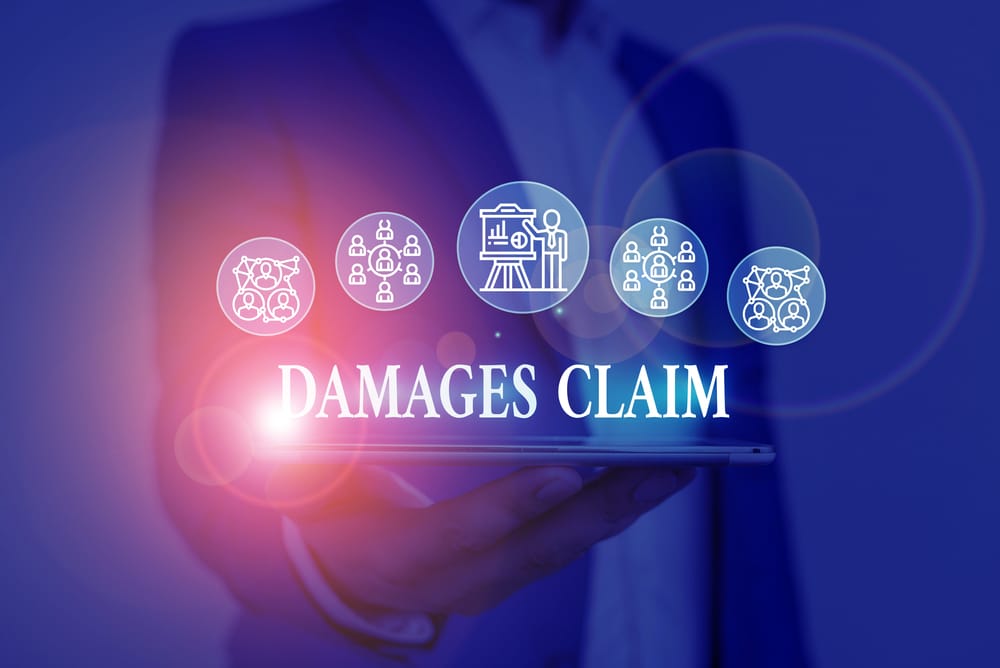Damages are a monetary award that is paid to a claimant in a lawsuit in order to compensate for injury or loss. There are many different types of damages, from special damages to general damages, and more. In rare cases, punitive damages are awarded. Unlike compensatory damages, punitive damages are meant to punish the defendant, not just compensate you for your injuries and losses.

Since all damages serve the purpose of compensating you for harm done, you may be confused about what the difference is between compensatory and punitive damages. Both types of damages are money paid by one side to the other as a legal remedy. As such, it may seem like compensatory damages in and of themselves are punitive damages.
The world of damages can be a confusing one. Your lawyer will be able to help you understand the types of damages suitable to your case. That said, here is a brief overview of the main differences between compensatory and punitive damages.
What Are Compensatory Damages?
Compensatory damages are designed as justice for being wronged and compensation for losses experienced. The basic types are special damages and general damages. Special damages are actual expenses the victim has incurred as a result of what happened. General damages are subjective, like pain and suffering, long-term medical care, and the like.
Compensatory damages are much more common than punitive damages.

What Are Punitive Damages?
Punitive damages are designed to prevent others from being hurt by the same actions that you suffered as a result of. The defendant is usually a company or other such large entity. This type of damages makes an example out of the defendant in order to discourage similar behavior from others.
What Is The Difference Between Compensatory And Punitive Damages?
It may seem like the two are the same thing, as you are receiving damages and the other party has to pay them to you. However, there are key differences between the two. Compensatory damages are designed to help victims while punitive damages are designed to punish wrongdoers.
Pain and suffering/emotional distress are compensatory damages, not punitive, because you are being compensated for your pain.
More About Punitive Damages
Punitive damages can be difficult to understand, so we’ll go into more detail about them here.
Typically, punitive damages are awarded in cases of tort liability. Tort is a civil wrong that results in injuries or damages to well-being or life. It differs from criminal charges because it focuses on harm to the individual, rather than harm to society. Tort can overlap with criminal wrongs, but it is designed to provide relief for those who have suffered as a result of infringement on protected interests.
There are three categories: intentional, negligence, and strict liability.
- Intentional includes assault, fraud, trespassing, invasion of privacy, etc.
- Negligence includes accidents and malpractice.
- Strict liability includes dangerous activities, defective products, and animal abuse.
Some examples include class action suits, intentional harm, and malicious intentions. These cases involve a conscious decision to engage in behavior that would hurt others.
Punitive damages make an example of the defendant to discourage others from engaging in similar behavior.
The criteria for punitive damages varies from state to state. These damages are given with other damages and typically don’t exceed 4x the amount of compensatory damages, however, there is no set limit. You usually receive punitive damages with compensatory damages.
Are Attorney Fees Damages?
In general, attorney fees are not damages. Personal injury attorneys typically don’t get paid unless you win your case. There are cases in which attorney fees may qualify as special damages, but these circumstances are limited, typically involve a breach of contract claim, and depend on the contract.
Can You Be Taxed On Damages?
Damages may be taxable. It depends on the type of damages and where you live. Typically, settlement money and damages are considered income, which means the IRS taxes them. Punitive damages and lost wages are taxable, while settlement awards from physical injury lawsuits may be non-taxable.
If you have any questions about whether or not your damages are taxable, it’s best to talk to a professional accountant. They will be able to assist you with all the specifics involving your taxes.
Do You Need A Personal Injury Attorney?

If you’re in need of a personal injury attorney, don’t hesitate to reach out to LeBaron & Jensen for a free case consultation. We’ll go over your case and let you know what your options are. If we can represent you, you can rest assured by the fact that we’ve won millions of dollars in damages for our clients. We ensure that you are represented fairly and fight for justice to be served.
Contact us today to schedule your case consultation.
